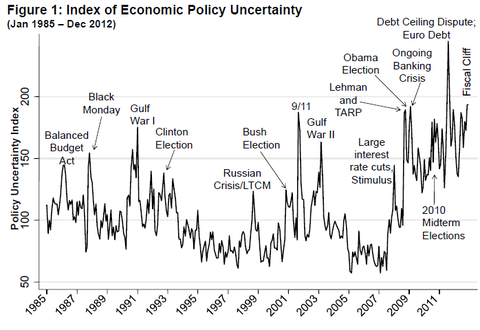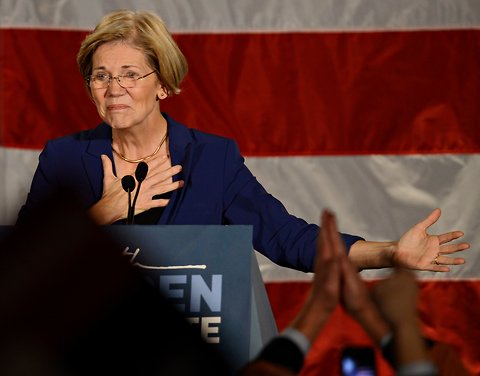
Simon Johnson, former chief economist of the International Monetary Fund, is the Ronald A. Kurtz Professor of Entrepreneurship at the M.I.T. Sloan School of Management and co-author of “White House Burning: The Founding Fathers, Our National Debt, and Why It Matters to You.”
This does not happen very often: the 12 presidents of Federal Reserve Banks have spoken with great clarity and in public on a financial reform issue: the need to change the rules for money-market funds. They are explicitly taking on the biggest banks and their allies, including some recalcitrant officials.
Today’s Economist
Perspectives from expert contributors.
While this will be a long haul – and these central bankers need a lot of external support – we are starting to see some progress toward building a new, more skeptical understanding of how the financial system works.
As far as I have been able to determine, the comment letter submitted on Feb. 12 by the Federal Reserve Bank of Boston – on behalf of all the regional Fed banks – was literally the first time these 12 organizations have spoken with one public voice without involving the Fed’s Board of Governors.
The Federal Reserve System – 100 years old this year – has a curious legal structure. The system comprises a very powerful Board of Governors and the 12 regional banks, with each of the latter nominally owned by member banks in its region. (Before the 1930s, the Washington-based board was less important, and the New York Fed was arguably the most powerful element of the system; see Liaquat Ahamed’s brilliant Pulitzer Prize-winning history of that period, “Lords of Finance: The Bankers Who Broke the World.”)
Ben Bernanke, as chairman of the Board of Governors, sits on the Financial Stability Oversight Council, a new body created by the Dodd-Frank financial-reform legislation to watch for systemic risks. This council has called for comments regarding a proposal for the reform of money-market funds, and Mr. Bernanke can hardly comment on his own ideas.
But the regional Feds are separate legal entities, and they are allowed to comment, so we get some unusual insight into sensible official thinking.
The problem is straightforward. Money-market funds operate in some ways like banks – their liabilities are regarded by investors to be just like bank deposits when times are good. But when times are scary – as when Lehman Brothers failed in September 2008 – there can be rapid and destabilizing runs by investors out of the funds. What we saw in fall 2008 had the potential to become even more damaging than the bank runs that characterized moments of panic before the introduction of deposit insurance.
The industry proposes to deal with this by allowing temporary restrictions on withdrawals when the pressure is on. This is a terrible idea that will just encourage people to run sooner and faster.
Of course, what the industry really wants is an implicit government guarantee – downside insurance for funds, preferably without any insurance premium or effective regulation, which is the current status quo. In fall 2008, these funds got an explicit guarantee, and they know that similar support would be available in the future — unless a way is found to make this part of the system less prone to collapse and contagion.
In principle, the Securities and Exchange Commission is in charge of changing money-market fund rules. Unfortunately, the financial-sector lobby has fought this issue to a deadlock at the highest levels of the S.E.C. Fortunately, post-Dodd-Frank, the Financial Stability Oversight Council has the ability to push for stronger standards, which it can either use directly or by bringing enough pressure to move the S.E.C. forward.
On this issue, the 12 regional Fed presidents have their priorities exactly right. There are some nuances on the details, but the most important idea is to float the net asset value for money-market funds, i.e., eliminate the illusion that these investment products necessarily have a stable value. The value of your equity mutual funds goes up and down every day, in a way that you can measure and understand. The same is true for money-market funds, but this reality is currently masked from investors.
We need more transparency and honesty around the nature of these investment products. This is good for consumers and absolutely essential for system stability. The Systemic Risk Council, led by Sheila Bair, the former chairwoman of the Federal Deposit Insurance Corporation, has also been pushing in this direction (I’m a member of this council).
You might also want equity buffers at money-market funds, and the Fed presidents bring this up as a possibility. It is encouraging to see these individuals push for higher equity (less debt relative to total assets); I favor much higher equity throughout the financial system. But I doubt the levels of equity under discussion will be enough to make a significant difference.
(In addition, the New York Fed is indicating, at least at the technical level, a preference for a minimum balance at risk. In this approach, an investor pulling money out of a fund would have some fraction set aside, perhaps five cents on the dollar, that would be in first-loss position for a period of 30 days or more – with the goal of discouraging runs. I see no sign that this idea is getting traction either among officials or more broadly.)
A generation ago, many banks viewed money-market funds with suspicion and even hostility, as they were competing for part of the same investor base. Now, however, the big bank-holding companies like money-market funds. Some banks manage money-market funds, and almost all of them rely on them for short-term cheap funding.
But this funding is cheap in part because of the implicit government guarantees provided to money-market funds. This encourages banks to rely on unstable funding, and we should be pushing in the other direction – toward longer-term, more stable sources of funding.
Expressing these concerns is not populism; the Fed is perhaps the least populist organization in the country. This is sensible economics with a clear and powerful rallying cry: Float the net asset value.
Article source: http://economix.blogs.nytimes.com/2013/02/21/twelve-angry-central-bankers/?partner=rss&emc=rss











